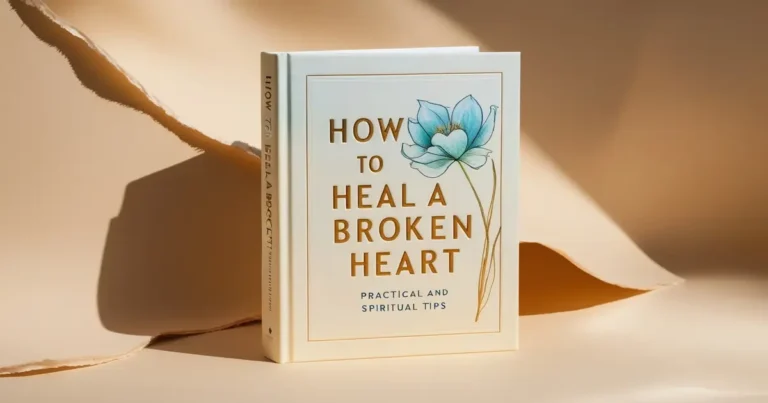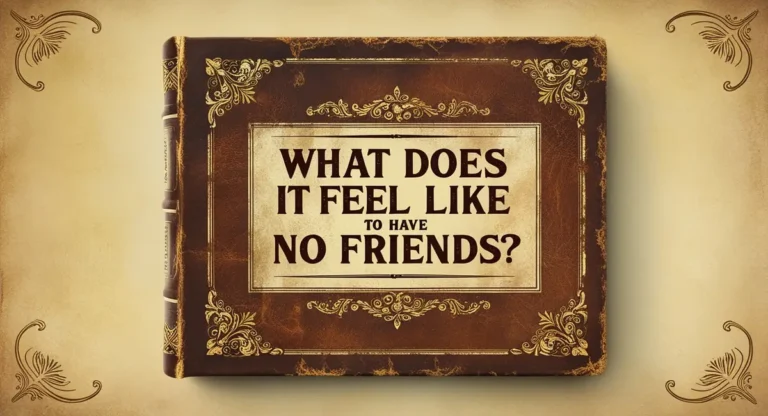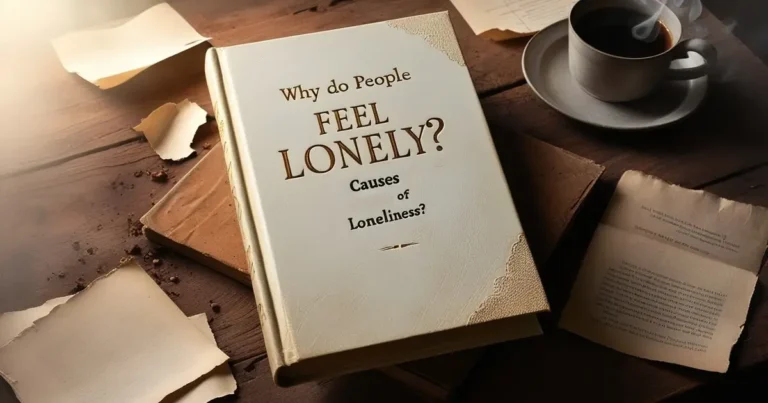Why Do We Sometimes Become Sad for No Reason? Explore the Depth of Sadness
Sadness is a universal human emotion. Sadness often feels like an uninvited shadow that lingers without explanation. It seeps into our hearts, sometimes for reasons we can’t consciously grasp, leaving us questioning ~Why do we Sometimes Become Sad~. Understanding this feeling can help us navigate it better and uncover the depth of sadness hidden beneath the surface of our lives.
Understanding the Depth of Sadness: Why Do We Sometimes Become Sad?
Sadness often feels like a mystery. It appears out of nowhere, even when life seems fine. As I reflect, I’ve often felt:
“Sadness has been my unexplained shadow my whole life. It feels like my soul carries currents I cannot see.”
These emotions may be linked to things we don’t consciously recognize. Unresolved memories, overwhelming stress, or even daily frustrations can pile up. Over time, they weigh on us, leading to unexplainable sadness.
“Our souls carry layers of emotions that we often suppress. But when these feelings resurface, they can make us feel sad for no reason.”
The modern world also doesn’t give us enough time to process our feelings. Instead, we are forced to move on quickly, pushing sadness deeper inside us. But ignoring it only makes it grow stronger.
H3: The Role of Unresolved Emotions
Often, sadness stems from unattended emotions. We’re burdened with unresolved conflicts—personal, professional, and relational—but feel powerless to address them.
“We’re too ‘busy’ to deal with our issues, or we feel helpless to change things. These neglected emotions accumulate, leading to sadness.”
By recognizing and addressing these underlying currents, we begin to reclaim a sense of balance.
Key Reasons for Why do we Sometimes Become Sad:
- Unresolved emotions from the past.
- Feeling overwhelmed by daily life.
- Suppression of natural emotions.
- Disconnection from self and others.
Sadness, though uncomfortable, can also be a signal that something needs our attention. By understanding the depth of sadness, we can learn to respond with kindness and care.

What Happens When Sadness Lingers?
When sadness lingers, it affects how we feel, think, and act. Simple tasks can feel impossible. You may feel disconnected from others or even from yourself.
“Sometimes, I feel like running away from everything. Even the things I love feel meaningless, and I don’t understand why.”
Sadness that persists might feel like a heavy cloud. It drains energy and motivation. You might even start questioning your purpose. This emotional heaviness can also affect physical health. It might lead to poor sleep, fatigue, or a weakened immune system.
It’s a reminder that even the happiest among us may harbor melancholy. Life, after all, is a blend of comedy and tragedy, as Shakespeare eloquently wrote:
“Life is but a walking shadow, a poor player that struts and frets his hour upon the stage, and then is heard no more.”
H3: Biological and Environmental Causes
Science shows that sadness isn’t always just emotional. Your body plays a role too. Hormonal imbalances, low energy levels, or even a gloomy day can impact your mood.
“Mood swings are often tied to our body’s systems—hormones, nervous systems, or even gut bacteria. These systems are complex and sensitive, which can lead to unexpected sadness.”
External Factors That Influence Sadness:
- Seasonal changes (like less sunlight in winter).
- A song or memory that triggers emotions.
- Hormonal shifts during different life stages.
H3: The Role of the Mind and Heart
Sadness is also linked to how we think and feel. If we don’t process our emotions, they build up like a hidden weight. Life’s challenges can deepen this feeling. But sadness can also teach us.
“Even though sadness feels overwhelming, it pushes me to reflect and grow. It reminds me of the importance of emotions.”
Understanding the connection between the heart, mind, and environment helps us face sadness more effectively.
How to Deal With Sadness: Simple Ways to Cope
Sadness can feel overwhelming, but there are practical ways to cope. These strategies can help ease the weight and bring balance back into your life.
H3: Spend Time in Nature
Nature has a calming effect on our minds and hearts. It helps us reconnect with ourselves and let go of stress.
“When I walk outside and feel the sun on my skin or the wind in my hair, it feels like a reset. It’s my way to detox from sadness.”
H3: Embrace Creative Outlets
Expressing sadness through creativity can be powerful. Writing, drawing, or even listening to music allows emotions to flow naturally.
“I write poems or stories when I’m sad. It helps me turn my feelings into something beautiful.”
H3: Acknowledge Your Emotions
Ignoring sadness only makes it stronger. Instead, allow yourself to cry or feel the emotion fully.
“Crying or even screaming in a safe space helps me release the sadness inside. It feels like a fresh start afterward.”
Practical Tips for Coping:
- Journaling your thoughts and feelings.
- Spending quiet time in meditation or prayer.
- Reaching out to friends or loved ones for support.
Spiritual Healing for Sadness
For some, sadness is more than an emotional experience. It reflects a deeper spiritual longing.
“We feel sad because we are made for something greater. Without God, we feel an emptiness that nothing else can fill.”
Connecting with spirituality can provide comfort and direction. Faith can help you find peace even in the midst of sadness.
“When I turned to Jesus, my life changed completely. His love filled the emptiness inside me. He gave me purpose and strength to face my emotions.”
Spiritual practices, such as prayer, meditation, or reading sacred texts, can ground you during tough times. This spiritual journey offers a profound perspective on sadness:
“Jesus’ love, presence, and forgiveness transformed my life. His grace satisfies the deepest longings of the soul. As John 14:6 says, ‘I am the way, and the truth, and the life.’ Only through Him can we find true purpose and fulfillment.”
Seeking this connection can bring unparalleled peace.
Benefits of Spiritual Connection:
| Benefit | How It Helps |
| Brings peace to your emotions | Reduces the overwhelming weight of sadness. |
| Provides meaning and purpose | Helps you see the bigger picture in life. |
| Strengthens inner resilience | Gives you hope and faith during challenging times. |
Spiritual healing helps you explore the depth of sadness and find light in the darkness.
H2: The Healing Power of Perspective
Sadness, when viewed through a compassionate lens, becomes a teacher. It reminds us of life’s fragility and beauty, urging us to live authentically.
“Life consists of many small moments. We should savor the present instead of worrying about the future. Sadness isn’t an enemy—it’s part of being human.”
Conclusion
Sadness is not your enemy. It’s a part of life that reminds us of our humanity. Instead of fighting it, embrace it. Use it as an opportunity to reflect, grow, and connect with your emotions.
“Sadness teaches me that life is fragile but beautiful. It reminds me to live fully and treasure every moment.”
By exploring the depth of sadness, you can uncover hidden strengths and move forward with hope. Let this feeling guide you toward growth, creativity, and peace.
FAQs
- Why do people feel sad without understanding the reason?
Sometimes, sadness stems from unresolved emotions or subconscious triggers. Environmental factors, such as a familiar scent or a certain song, can evoke buried memories, causing unexplained emotions. These hidden factors contribute to the depth of sadness we feel. - How can sadness be turned into something positive?
Sadness can inspire creativity and reflection. Writing, painting, or journaling lets you channel emotions into meaningful expressions. This approach not only helps to cope but also transforms unexplained emotions into personal growth and healing. - What is the role of spirituality in dealing with sadness?
Spirituality offers peace and purpose during times of sadness. Connecting with a higher power can fill emotional voids and provide strength. Practices like prayer and meditation often help with spiritual healing for sadness, fostering a sense of hope. - Can physiological factors cause sudden sadness?
Yes, biological changes, like hormone imbalances or neurotransmitter shifts, can trigger unexpected sadness. Factors such as fatigue or seasonal changes can also influence mood, showing how even small disruptions can deepen the understanding of unexplained emotions. - What are the best ways to cope with sadness in daily life?
Spend time in nature, embrace solitude, and explore creative outlets. These activities encourage mindfulness and emotional release. Knowing how to deal with sadness effectively can lead to better emotional well-being and a deeper appreciation for life’s balance.

I’m Mustansar Khan – the person behind this little online haven. I invite you into the ebbs and flows of my life, sharing honest reflections on love, loss, friendship, and everything in between. Join me as I unpack the joys, struggles, and life lessons that make us gloriously, beautifully human.






